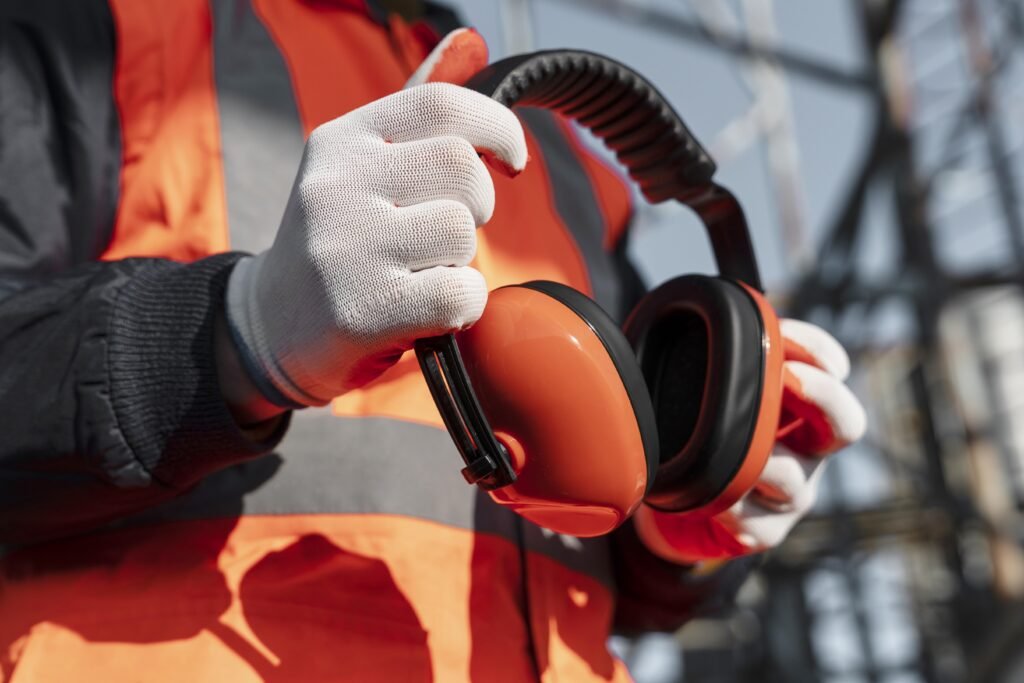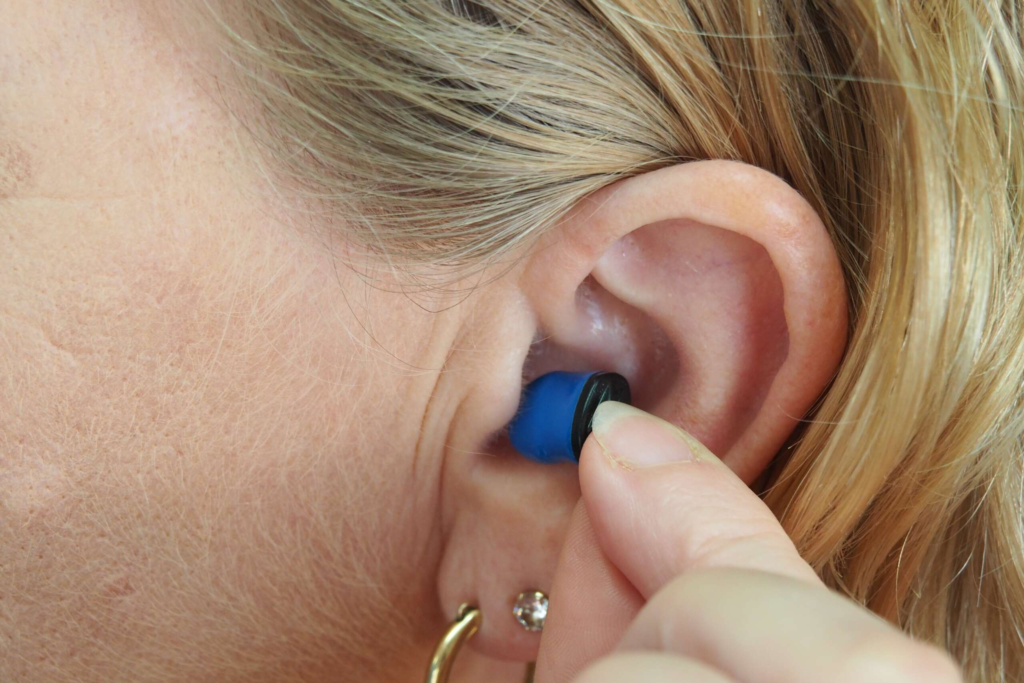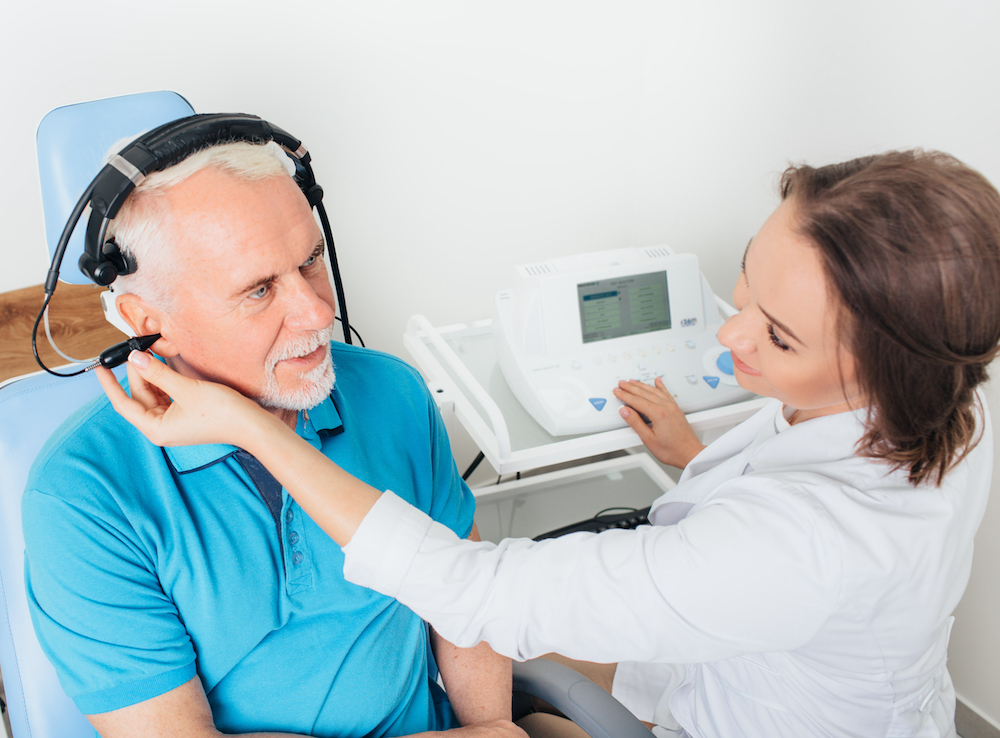Hearing loss is an increasing concern, affecting millions of people worldwide. It can vastly impact your daily life, making it tough to follow conversations, enjoy music, or appreciate the subtle sounds of the world around you. But the good news is that many cases of hearing loss are preventable. In this blog post, we’ll explore essential tips to safeguard your hearing and ensure you can continue to experience the richness of sound for years to come.
Types Of Hearing Loss
1. Sudden Hearing Loss
Sudden hearing loss, sometimes called sudden deafness or sudden sensorineural hearing loss (SSHL), can be a frightening experience. This unexplained loss of hearing happens quickly, either all at once or over a few days. It affects the inner ear; the part plays a role in converting sound waves into electrical signals for the brain to interpret. SSHL often strikes just one ear, leaving you with muffled hearing or complete deafness in that ear.
2. Age Related Hearing Loss
As we age more and more, our hearing naturally declines. This age-related hearing loss, affecting both ears, is a gradual process. In fact, one in three Americans between 65 and 74 experiences it. The culprits behind this decline are varied: changes within the middle ear and nerve pathways, a long-term prevalence of certain health conditions like diabetes in older adults, and other factors not yet fully understood.
3. Tinnitus
Ever hear ringing, roaring, or buzzing in your ears even when there’s no external sound? That’s tinnitus, a common hearing issue affecting 10 to 25% of adults. It typically manifests as a ringing sensation but can also present as roaring or buzzing. The good news is that tinnitus often improves or even disappears over time. However, it can become chronic, persisting for three months or more.
Noise-Induced Hearing Loss
Cranking up the volume on your headphones or being constantly exposed to loud noises can take a toll on your hearing. This is noise-induced hearing loss (NIHL), where prolonged exposure to loud sounds damages the inner ear. NIHL can develop gradually over time, or it might happen suddenly after a very loud noise. The good news? Unlike some forms of hearing loss, NIHL is preventable. By taking steps to protect your ears from excessive noise, you can safeguard your hearing and keep enjoying the world’s rich soundscapes.
Hearing Loss Causes
Loud noise:
Everyday loud noises can be surprisingly harmful to your hearing. From the roar of lawnmowers to booming fireworks and pumped-up music, these sounds can permanently damage the delicate structures in your inner ear. This is because prolonged exposure to loud noise (anything above 85 decibels) can overstimulate the hair cells, which play a part in converting sound waves into electrical signals for the brain. Over time, this overstimulation can damage or destroy these hair cells, leading to hearing loss.
Earwax or fluid buildup:
Sometimes, hearing loss can be from a temporary blockage rather than permanent damage. Storage of earwax or fluid in the ear canal can act like a tiny earplug, muffling sounds or even completely blocking them. This happens because the sound waves can’t reach the eardrum as easily when the ear canal is obstructed. Fortunately, removing the earwax or fluid usually restores normal hearing.
A ruptured eardrum:
A nasty surprise can also lead to hearing loss: a ruptured eardrum. This thin membrane in your ear can be injured by infections, sudden pressure changes (like during air travel), or even inserting objects like cotton swabs (a big no-no!). A damaged eardrum can cause temporary or permanent hearing loss, depending on the harshness of the tear.
Smoking:
Kick the butt for your ears’ sake! Research has revealed a clear link between smoking and hearing loss. The chemicals in tobacco smoke can damage the hair cells in your inner ear, which are responsible for converting sound waves into electrical signals. This translates to a higher risk of developing hearing problems and hearing loss for smokers. If you’re already a smoker, quitting is the best decision you can make for both your overall health and your hearing. Even if you’re not a smoker, be mindful of secondhand smoke exposure. By avoiding these harmful fumes, you’re not only protecting your lungs but also safeguarding your precious sense of hearing.
Certain health conditions:
Underlying health conditions can sometimes play a role in hearing loss. Diabetes, high blood pressure, and certain heart issues can affect blood flow to the delicate inner ear structures, potentially leading to hearing problems. Additionally, stroke, brain injuries, tumors, and even chronic ear infections can contribute to hearing loss. If you have any concerns about your hearing or underlying health conditions, be sure to consult your doctor for a checkup.
Certain medications:
Be aware of medications that might affect your hearing. Some medications, especially those used for the treatment of cancer, certain antibiotics, and high doses of aspirin, can have ototoxic effects. This means they can damage the hair cells in the inner ear, potentially leading to permanent hearing loss. If you’re taking any medications, talk to your doctor about potential side effects and whether hearing loss is a risk factor for your specific treatment plan.
Genetic variations:
Sometimes, hearing loss is written in your genes. If you have a family history of hearing problems, you may be more predisposed to experiencing them yourself. This is because certain genetic variations can affect the production or function of the inner ear structures responsible for hearing.
How does hearing damage happen?
Our ears are marvels of engineering, but loud noises can be brutal. Measured in decibels (dB), sounds above 85 dB, like traffic or headphones at high volume, can damage the soft hair cells in our inner ears. These hair cells are irreplaceable; we’re born with about 16,000, and losing even half can cause hearing loss without us noticing at first. The damage is permanent, so protecting your ears from excessive noise is key to safeguarding your hearing for life.
Hearing Loss Symptoms & Signs
Is it getting harder to follow conversations? You might be experiencing hearing loss. Here are some common signs to watch out for: difficulty understanding people on the phone, struggling to keep up in group conversations, constantly asking others to repeat themselves, needing to crank up the TV volume, having trouble hearing in noisy environments, feeling like everyone mumbles, and having difficulty with high-pitched sounds. If you’re noticing these issues, it’s a good idea to schedule a hearing test with your doctor. Early detection and intervention can help you manage hearing loss and continue to enjoy a rich soundscape.
How To Prevent Hearing Loss
- Monitor Your Volume
Crank up the tunes without cranking up the risk of hearing loss! Be mindful of noise levels when using headphones or watching TV. To keep your ears safe, follow the 60/60 rule: listen at no more than 60% of your device’s maximum volume for a maximum of 60 minutes at a time. This simple strategy helps prevent damage to the delicate hair cells in your ears, ensuring you can enjoy your favorite music and shows for years to come.
- Wear Hearing Protection
Don’t let loud noises steal your hearing enjoyment! When you know you’ll be around loud sounds, like rock concerts, power tools, or booming nightclub music, gear up with ear protection. Earplugs, ear muffs, or other protective devices are your ears’ best friends in noisy environments. These devices act as sound barriers, reducing the decibel level reaching your eardrums and safeguarding those precious hair cells. Make ear protection a must-have for any situation where loud noise is expected, and your ears will thank you for it!

- Avoid Inserting Objects in Ears
Cotton swabs and your ears? Not a good match! While they might seem like a handy tool for cleaning, inserting anything into your ear canal can actually damage your eardrum and even cause hearing loss. The delicate ear canal is self-cleaning, producing earwax that naturally traps dust and debris. This wax eventually dries and falls out on its own. If you’re concerned about excessive earwax buildup, consult your doctor for safe removal methods. It’s always better to be cautious than risk harming your precious sense of hearing.

- Get an Annual Hearing Test
Schedule regular hearing checkups, just like you would for your eyes or teeth. An annual hearing test allows for early detection of any hearing loss. If you haven’t had one before, consider a baseline test to establish your current hearing health. Early intervention is key for managing hearing loss and ensuring you can continue to experience the beautiful sounds of the world around you.

- Exercise Regularly
Move your body and improve your hearing! Exercise is not only good for your physical health; it can also benefit your ears. Physical activity boosts oxygen levels and blood circulation throughout your body, including the delicate inner ear. This helps keep those vital hair cells healthy and functioning properly, potentially reducing your risk of hearing loss. So, tie up your shoes, hit the gym, or take a walk—your ears will thank you for it!

- Boost Vitamin Intake
While a balanced diet won’t cure hearing loss, it can play a supporting role. Certain vitamins and minerals might contribute to healthy hearing. These include B12, potassium, magnesium, and even iron, as deficiencies in iron can increase hearing loss risk. Remember, these are potential benefits, and it’s always best to consult your doctor before making any dietary changes or taking supplements specifically for hearing health.
How to Know When the sound is Too Loud
How loud is too loud? Here are some telltale signs you’ve crossed the threshold into hearing-damaging territory:
Raising your voice: If you need to raise your voice to have a normal conversation, the noise level is likely too high.
Proximity matters: Having to move uncomfortably close (less than 3 feet) to understand someone is another red flag.
Muffled hearing: Experiencing muffled or dull hearing after being in a loud environment indicates potential damage.
Ear pain or ringing: Ear pain or ringing after exposure to loud noise is a clear sign it was too loud.
If you experience any of these signs, take a break from the noise and consider using ear protection next time. Remember, your ears can’t regenerate damaged hair cells, so protecting them is crucial for lifelong enjoyment of sound.


